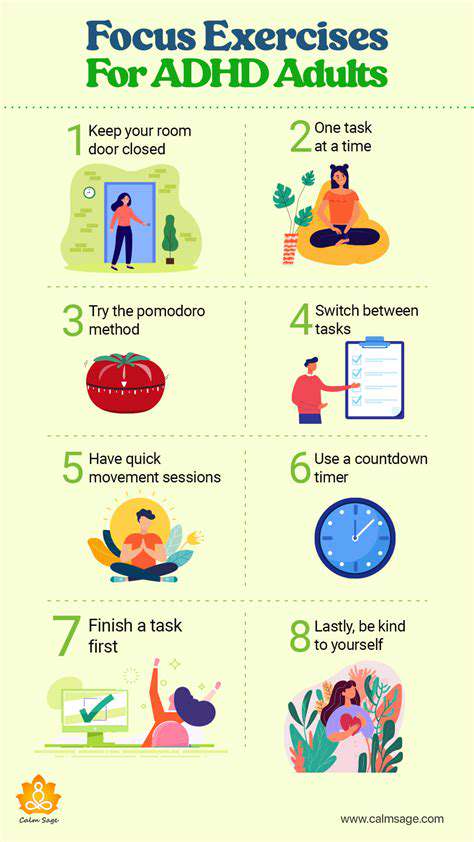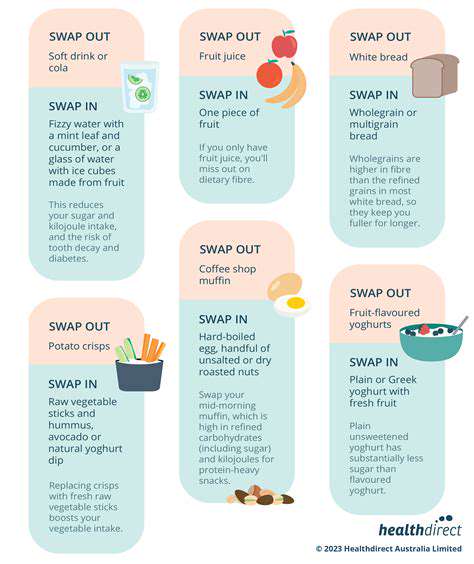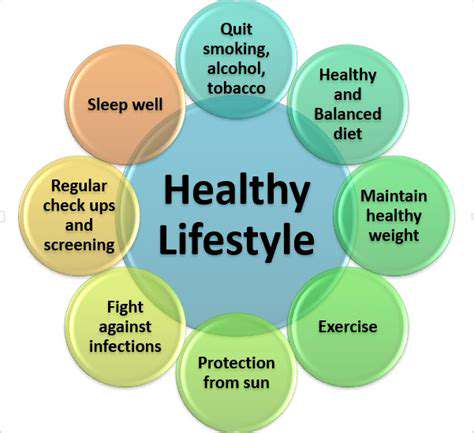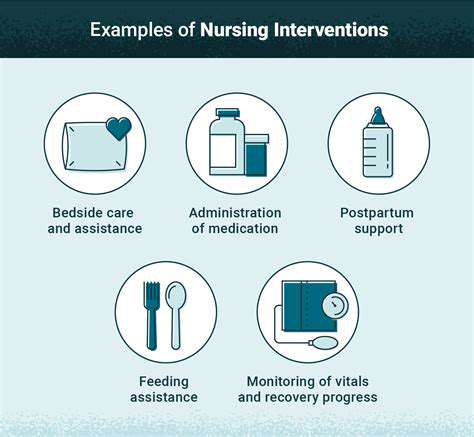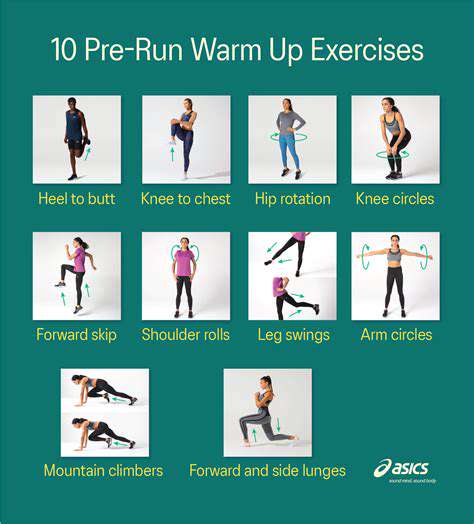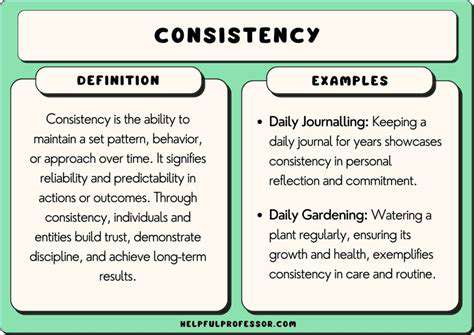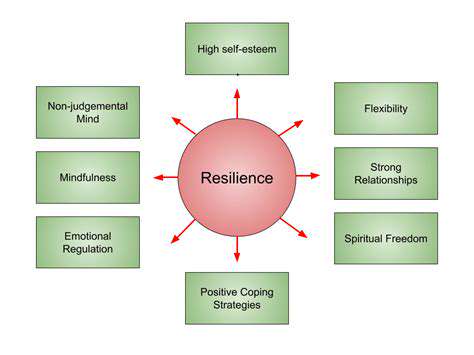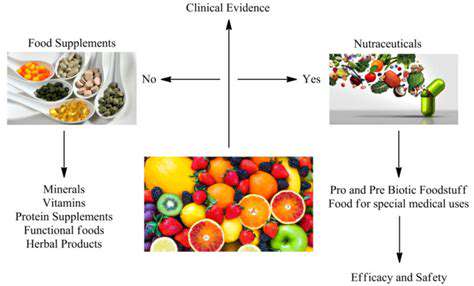10 Simple Ways to Reduce Stress Daily


Unplug and Disconnect
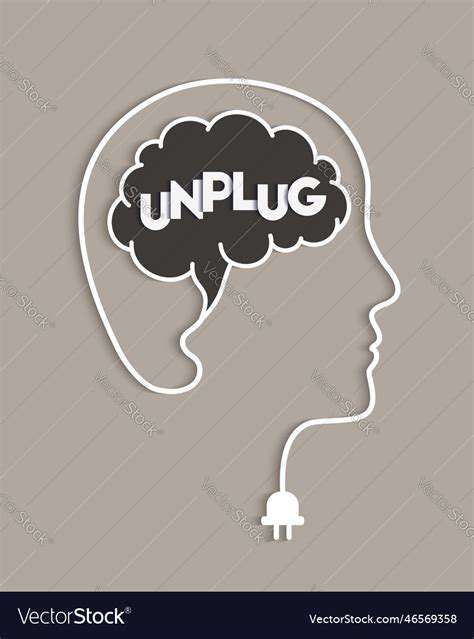
Unplugging from the Digital World
In today's hyper-connected world, it's easy to feel overwhelmed by the constant barrage of information and notifications. Taking time to disconnect from digital devices is crucial for maintaining mental well-being. Stepping away from screens allows us to reconnect with ourselves and the present moment, fostering a greater sense of peace and clarity.
Regular digital detox periods can significantly reduce stress and anxiety. By consciously unplugging, we can cultivate mindfulness and appreciate the simple pleasures in life, leading to a more balanced and fulfilling existence.
The Benefits of Disconnecting
Disconnecting from technology offers a wealth of benefits, extending far beyond simply reducing screen time. It allows us to cultivate deeper connections with those around us. Without the constant distractions of social media and other digital platforms, we can engage more meaningfully in conversations and interactions with family, friends, and colleagues.
Unplugging also fosters creativity and innovation. When we step away from the digital distractions, our minds are free to wander and explore new ideas. This mental space is fertile ground for inspiration and can lead to breakthroughs in problem-solving and creative endeavors.
Practical Strategies for Disconnecting
Implementing practical strategies for disconnecting is essential for reaping the benefits. One effective technique is to establish specific times for digital abstinence, such as during meals, before bed, or on weekends.
Designate specific areas in your home as digital-free zones. This can be a particular room or even a designated time period. Creating these boundaries will help maintain a healthy work-life balance, allowing for periods of focused rest and relaxation.
Mindful Technology Use
Instead of simply abandoning technology altogether, consider adopting a more mindful approach to its usage. Consciously choosing when and how you engage with digital platforms allows you to control your experiences rather than letting them control you. This involves setting limits on screen time, prioritizing tasks, and being aware of the potential for distraction.
Recognizing the impact of social media and online interactions is key. By understanding how these platforms can affect your mood and mental state, you can make more informed choices about your engagement with them.
Reconnecting with Yourself and Others
Disconnecting from technology provides an opportunity for introspection and self-discovery. This downtime allows you to reflect on your values, goals, and priorities, fostering personal growth and a stronger sense of self.
Prioritizing face-to-face interactions with loved ones helps strengthen bonds and create lasting memories. Engage in meaningful conversations, share experiences, and cultivate deeper connections with those who matter most.
The Importance of Digital Wellbeing
In today's digital age, prioritizing digital wellbeing is paramount. This encompasses not just unplugging but also actively cultivating healthy habits surrounding technology use. Creating a balanced approach to technology integration promotes overall well-being, fostering a more mindful and fulfilling lifestyle. By taking control of your digital experience, you can reclaim your time, energy, and focus.
Understanding the potential pitfalls of excessive screen time, and actively seeking ways to mitigate these effects, can create a healthier and more balanced life. Ultimately, this conscious approach to technology use is essential for maintaining mental clarity, emotional well-being, and a stronger connection with yourself and those around you.
Healthy Diet for Stress Management
Understanding the Link Between Diet and Stress
A healthy diet isn't just about looking good; it plays a crucial role in managing stress levels. Nourishing your body with the right nutrients provides the building blocks for a strong immune system, which is vital in combating the physiological effects of stress. A well-balanced diet can help regulate hormones, maintain energy levels, and improve overall mood, all of which contribute to a more resilient approach to daily stressors. This means focusing on whole foods like fruits, vegetables, and lean proteins, rather than relying on processed foods and sugary drinks that can often exacerbate stress responses.
The foods we consume directly impact our brain chemistry. Certain nutrients are essential for the production of neurotransmitters like serotonin and dopamine, which are crucial for regulating mood and reducing feelings of anxiety and overwhelm. A diet lacking in these vital nutrients can leave us feeling more susceptible to stress and less equipped to cope with challenging situations. Therefore, understanding the connection between diet and stress is the first step towards implementing strategies for managing stress effectively.
Specific Dietary Strategies for Stress Reduction
Incorporating specific foods into your diet can significantly impact your stress response. Foods rich in magnesium, like leafy greens and nuts, are known to help relax muscles and reduce anxiety. Omega-3 fatty acids, found in fatty fish and flaxseed, have anti-inflammatory properties that can help calm the body's stress response. Furthermore, consuming foods rich in complex carbohydrates, such as whole grains, provides sustained energy, preventing energy crashes that can often trigger feelings of irritability and frustration, common stress triggers.
Hydration is also a key component of stress management. Dehydration can exacerbate stress symptoms, making it harder to cope with daily pressures. Drinking plenty of water throughout the day helps maintain optimal bodily functions, supporting the body's natural stress-reducing mechanisms. Prioritizing a balanced diet that includes these key nutrients can create a positive feedback loop, allowing your body to better manage the effects of stress and promote overall well-being.
Avoiding excessive caffeine and sugar is also important. While these substances might offer a temporary energy boost, they can often lead to a subsequent crash, increasing feelings of anxiety and stress. Making mindful choices about what you eat and drink can make a significant difference in your ability to manage stress effectively.
Regular consumption of nutrient-dense foods also helps in maintaining a healthy gut microbiome, which plays a crucial role in mood regulation. A balanced gut microbiome is associated with improved mental well-being, making it an important factor in managing stress.
Prioritizing a healthy diet as part of a comprehensive stress management plan can significantly improve your overall well-being and resilience to stress.
Engage in Relaxing Activities
Deep Breathing Exercises
Incorporating deep breathing exercises into your daily routine can significantly reduce stress levels. These exercises work by slowing your heart rate and promoting a sense of calm. By focusing on your breath, you shift your attention away from stressful thoughts and worries, allowing your body to relax. Finding a quiet space and dedicating even just a few minutes to focused breathing can have a profound impact on your overall well-being and help you manage stress effectively.
Various techniques exist, such as diaphragmatic breathing, where you focus on filling your belly with air. Practice these techniques regularly, and you'll notice a noticeable difference in your stress response over time. Even simple mindful breathing throughout the day can provide moments of respite and help to regulate your emotional state.
Mindfulness Meditation
Mindfulness meditation involves focusing on the present moment without judgment. It's a practice that encourages you to observe your thoughts and feelings as they arise, rather than getting caught up in them. Through regular meditation, you can cultivate a greater awareness of your internal state, enabling you to respond to stressful situations with more composure and less reactivity. This practice helps you develop emotional resilience and a greater sense of control over your mental state.
Even short mindfulness exercises, such as paying attention to the sensations of your breath or the feel of your feet on the ground, can be incredibly beneficial. These exercises can help you to develop a greater sense of presence, reducing the tendency to dwell on the past or worry about the future, which are significant contributors to stress.
Engage in Physical Activity
Physical activity is a powerful stress reliever. Exercise releases endorphins, which have mood-boosting effects and can help reduce feelings of anxiety and tension. Whether it's a brisk walk, a yoga session, or a gym workout, finding an activity you enjoy and incorporating it into your schedule can make a substantial difference in managing stress. The physical exertion combined with the mental focus required can effectively clear your mind and promote relaxation.
Even a 15-minute walk outside can be a great way to incorporate movement into your day. Finding an activity you genuinely enjoy is key to maintaining consistency. The positive physical and mental benefits of regular exercise far outweigh the initial effort required.
Spending Time in Nature
Surrounding yourself with nature can have a remarkably calming effect. Spending time outdoors, whether it's a walk in the park, sitting by a lake, or simply observing trees, can reduce stress hormones and promote relaxation. The natural world offers a soothing escape from the pressures of daily life and provides a sense of peace and tranquility. Being in nature can help you to reconnect with yourself and appreciate the beauty around you.
Even a few minutes spent observing the details of nature, such as the colors of flowers or the patterns in leaves, can have a positive impact on your mood and reduce feelings of stress. Taking time to appreciate the natural world is a simple yet effective way to manage stress.
Progressive Muscle Relaxation
Progressive muscle relaxation is a technique that involves tensing and releasing different muscle groups in your body. This process helps you become more aware of physical tension and learn to release it. By systematically tensing and relaxing muscles, you can identify areas of physical tightness and address them, which often correlates with stress and anxiety. This technique can help you learn to recognize and manage physical tension, a key element in reducing overall stress.
This practice can be incredibly helpful in reducing physical symptoms of stress, such as headaches or back pain. Regular practice can help you develop a greater sense of body awareness, which can be very beneficial in managing stress and promoting relaxation.
Creative Outlets
Engaging in creative activities such as painting, drawing, writing, or playing music can be excellent stress relievers. Creative expression allows you to channel your emotions and thoughts into something tangible and fulfilling. This process can be a healthy way to release pent-up stress and emotions, fostering a sense of calm and well-being. Exploring your creativity can be a powerful tool for stress management and emotional regulation.
Finding a creative outlet that resonates with you is crucial. Whether it's painting a landscape, writing a poem, or composing music, the act of creation itself can be therapeutic and help you to detach from stressful thoughts and concerns. The act of creation can be a powerful stress-reducing tool.
Read more about 10 Simple Ways to Reduce Stress Daily
Hot Recommendations
-
*Guide to Managing Gout Through Diet
-
*Best Habits for Financial Well being
-
*How to Build a Routine for Better Mental Health
-
*How to Eat Healthy on a Budget [Tips & Meal Ideas]
-
*Guide to Practicing Self Acceptance
-
*How to Incorporate More Movement Into Your Day
-
*Guide to Managing Chronic Pain Naturally
-
*Guide to Building a Reading Habit for Well being
-
*Top 5 Weight Loss Supplements That Actually Work
-
*Best Exercises for Postpartum Recovery [Beyond Abdominal Work]
